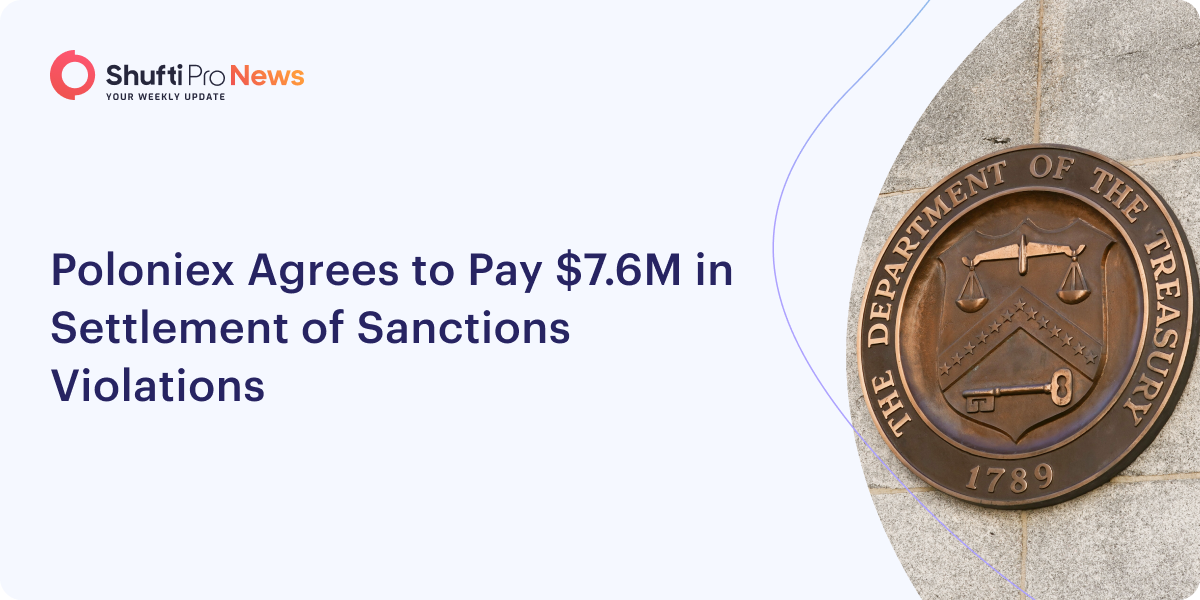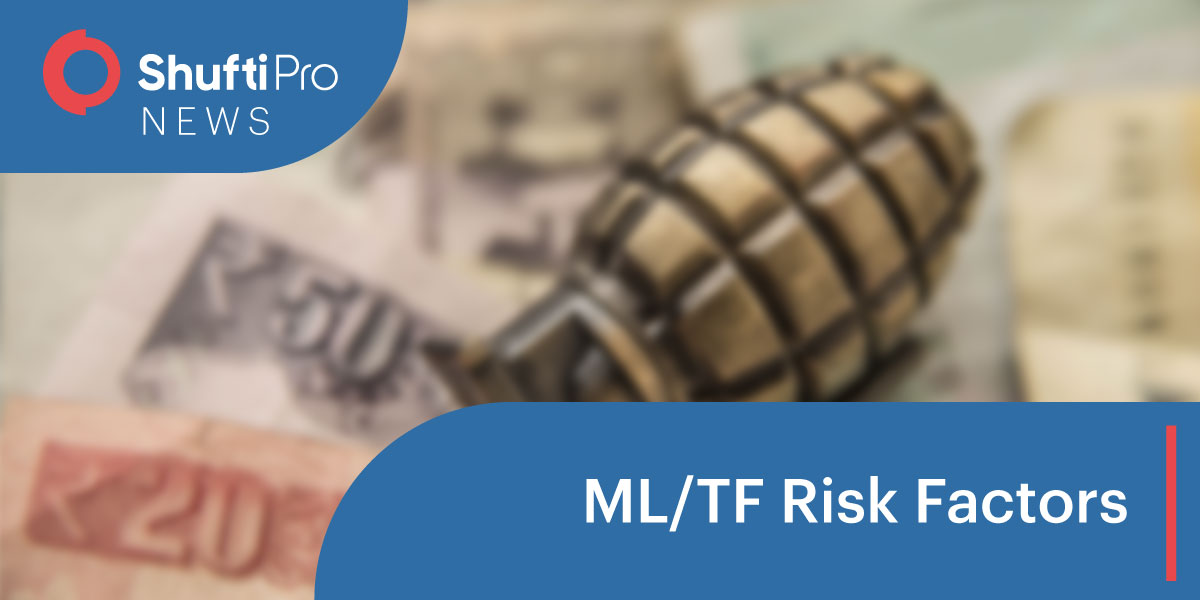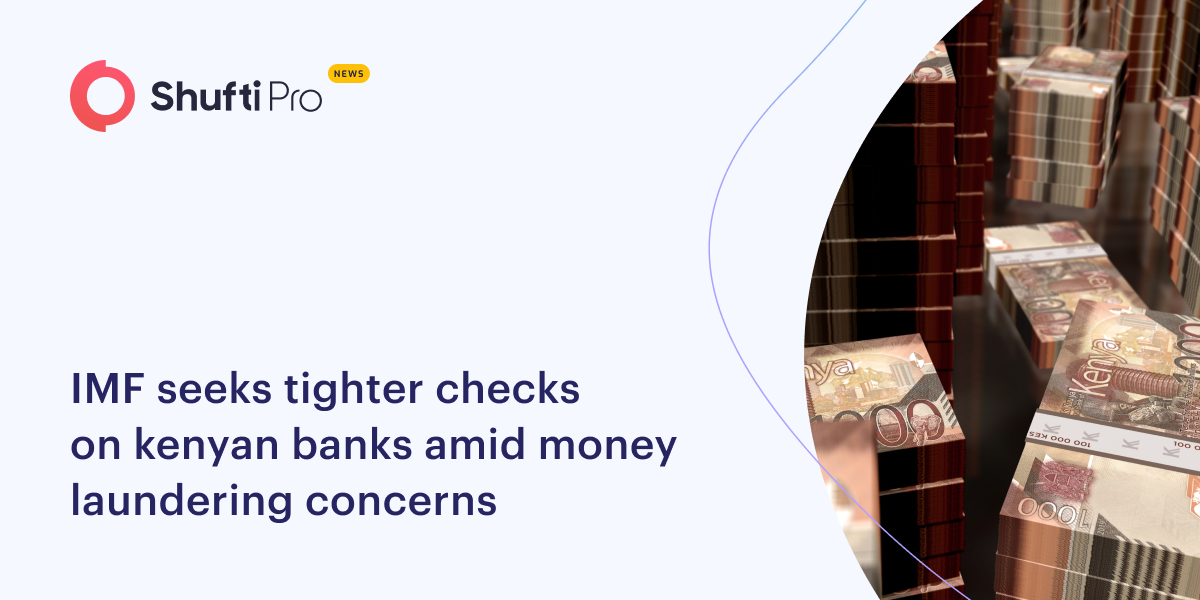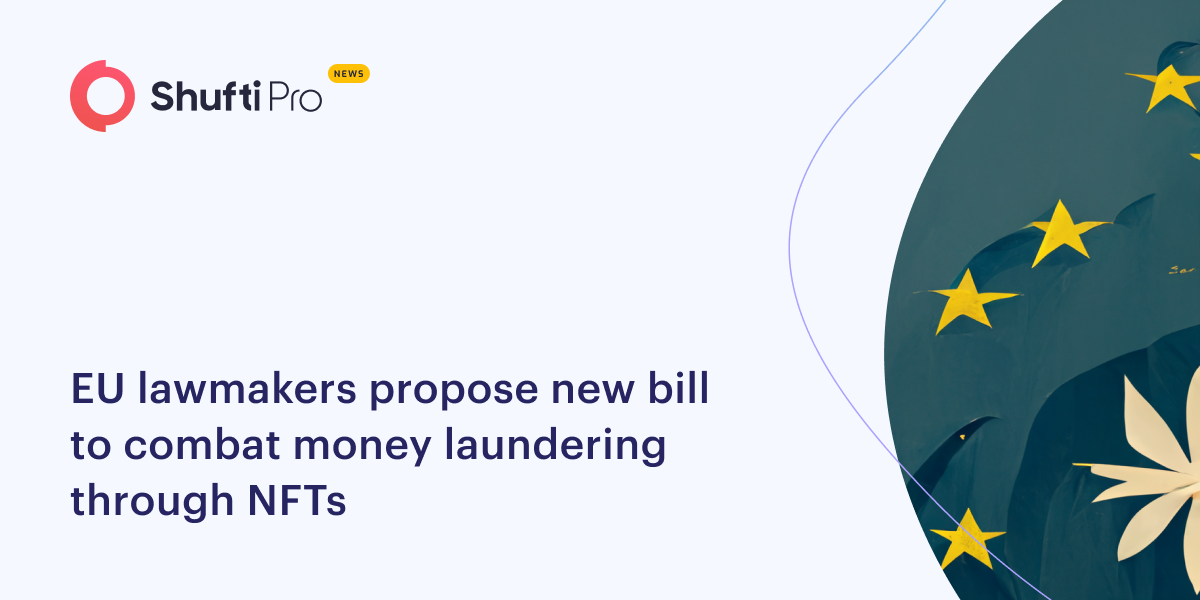News
UK court orders crypto exchange to shut down after clients lose $2M
In a recent statement, the U.K. government stated that 108 of their clients had lost a total of a...
 Explore More
Explore More
News
UK Treasury Committee Launches Inquiry into the Role of Crypto Assets and the Associated Risks
The Treasury Committee of the UK’s House of Commons has urged the public to submit their take and...
 Explore More
Explore More
News
UK to Regulate Stablecoins & Mint its Own NFTs to Become Global Crypto Hub
The UK is reportedly planning to regulate stablecoins as a payment method and the Royal Mint is t...
 Explore More
Explore More
News
Star Casino Faces Class Action for Anti-Money Laundering Failures
The Star casino has been hit with a shareholder class action for its alleged non-compliance with ...
 Explore More
Explore More
News
Nepal at Risk of ‘Graylisting’ for Allowing Money Laundering
Nepal could be added to FATF’s greylist as the global AML watchdog has found a number of deficie...
 Explore More
Explore More
News
Non-compliant Crypto Accounts will Face Immediate Closure from Banks – Says CBN
Nigerian banks are ordered to track and freeze non-compliant crypto accounts, while banks that fa...
 Explore More
Explore More
News
Adelaide Casino to Face Court Action Over AML/CTF Violations
AUSTRAC has revealed the beginning of civil penalty proceedings in the Federal Court against SkyC...
 Explore More
Explore More
News
Germany to Implement the 6th AML Directive to Secure Financial Firms
The Federal Government of Germany has decided to draft a law for money laundering operations. Eur...
 Explore More
Explore More
News
Vietnam’s New Legislation on E-Transactions Will Take Effect on July 2024
The National Assembly of Vietnam passed the new e-Transaction law replacing the previous one, No....
 Explore More
Explore More
News
Poloniex Agrees to Pay $7.6M in Settlement of Sanctions Violations
In a settlement with the Office of Foreign Asset Control (OFAC), Poloniex LLC, a former subsidiar...
 Explore More
Explore More
News
Six Men Arrested in Hong Kong for US$22.4 Million in Fraud
Hong Kong police crackdown on a crime syndicate and arrest six people involved in money launderin...
 Explore More
Explore More
News
El Salvador Must Address Bitcoin’s Risks, Demands IMF
The IMF has urged El Salvador to address the risk associated with the adoption of bitcoin as a le...
 Explore More
Explore More
News
Nearly $30 Billion Laundered Through Canada’s Real Estate – Says TIC
A joint study by Transparency International Canada and the End Snow Washing Coalition highlighted...
 Explore More
Explore More
News
Blue Star Planet to Pay £620,000 for AML Failures Uncovered by Gambling Commission
Blue Star Planet which was trading as 10Bet to pay £620,000 ($746,716) after it was found guilty ...
 Explore More
Explore More
News
Crime on the Rise, Mutual Fund Investments Need KYC
Know Your Customer (KYC) is to be implemented on all financial market-related investments. In ord...
 Explore More
Explore More
News
Louisiana Approves First Regulation Requiring Age Verification to Access Pornography Sites
Louisiana’s House of Representatives passed the bill against age verification in the porn industr...
 Explore More
Explore More
News
Digital euro successfully tested at the Bank of France
On May 20, Banque de France announced that France has become the first country to successfully te...
 Explore More
Explore More
News
Face Detection Tool to Fight Bots Under Trial by Facebook
Facebook is currently battling a $35 billion class-action lawsuit for alleged misuse of facial re...
 Explore More
Explore More
News
Uber joins lawsuits to exempt itself from California law
California law effective from today, i.e. Jan 1 is all set to give equal protection to independen...
 Explore More
Explore More
News
ABA House of Delegates Amends the AML Model Rule to Curb Financial Crimes
The House of Delegates amended the ABA Model Rule of Professional Conduct 1.16, which covers decl...
 Explore More
Explore More
News
Google to Improve its Compliance Program After BTC-e Data Loss
Google has committed to strengthening its legal compliance program after losing data linked with ...
 Explore More
Explore More
News
Dubai KYC consortium to enhance UAE bank profits
According to Moody’s Investors Service, the recently formed Know Your Customer (KYC) consortium i...
 Explore More
Explore More
News
ECB Will Be Launching Digital Euro Project
An electronic equivalent of banknotes and coins, the digital euro will likely be a digital wallet...
 Explore More
Explore More
News
France to Consider Amendment Obliging Crypto Firms to Obtain Licenses
In January 2023, the French Parliament will consider the amendment to cancel the favorable treatm...
 Explore More
Explore More
News
South Korea’s Telecom Giant to Introduce Blockchain Wallets for Official Documents
SK Telecom, a South Korean telecom giant, has announced its first e-wallet for digitally storing ...
 Explore More
Explore More
News
UAE Confiscates Dh4.73 Bn Worth of Assets in Fight Against Financial Crimes
In the past 12 months, the United Arab Emirates has seized assets worth Dh4.73 billion ($1.29bn) ...
 Explore More
Explore More
News
The UAE Hosts the Egmont Plenary to Promote Global Anti-Money Laundering Efforts
The UAE Financial Intelligence Unit is hosting this year’s Egmont Plenary event, which is e...
 Explore More
Explore More
News
ICAEW Calls for Professional Scepticism to Mitigate Money Laundering in UAE
The Institute of Chartered Accountants in England and Wales (ICAEW) and the UAE’s Accountants &am...
 Explore More
Explore More
News
AUSTRAC Denounces De-banking Practices To Prevent Financial Crimes
AUSTRAC stated that de-banking is a complex global problem as it multiplies the risks faced by fi...
 Explore More
Explore More
News
Art Dealers Urged to Intensify Regulatory Actions Against Money Launderers
The Department of Justice is establishing new rules to combat financial crimes via the art market...
 Explore More
Explore More
News
Credit Union Identity Theft Investigation Handed Over to Federal Prosecutors
NY Police have handed over the investigation of a $100,000 ID theft ring allegedly involving a fo...
 Explore More
Explore More
News
The Bicycle Hotel & Casino Fined $500K For Violating AML Laws
The Bicycle Hotel and Casino will be paying $500K in fine as it failed to report Currency Transac...
 Explore More
Explore More
News
EBA revised its guidelines on ML/FT risk factors
The European Banking Authority (EBA) issued revised money laundering and terrorist funding (ML/TF...
 Explore More
Explore More
News
U.S. Schools and Colleges Witness a Rise in Data Breaches
Data breaches and cyberattacks continue to grow and now targeting the education sector. Amid the ...
 Explore More
Explore More
News
Singapore Central Bank to Utilize AI Technology to Combat Money Laundering
The Monetary Authority Singapore (MAS) seeks to utilise AI technology to bolster the security of ...
 Explore More
Explore More
News
WhatsApp accounts hacked to acquire bank card details
Recently a new scam has emerged in Singapore where hackers are found to take-over WhatsApp accoun...
 Explore More
Explore More
News
Bill to Combat Money Laundering Makes Its Way Through The Senate
The US House of Representatives passed the Corporate Transparency Act of 2019 (HR 2513) on Octobe...
 Explore More
Explore More
News
US Officials allege student defrauded Apple as part of SIM swap attack
Richard Yuan Li, a student at the University of California-San Diego, is charged with plotting to...
 Explore More
Explore More
News
The IRS Issues Last Minute-Warning To Avoid Tax Penalties
A new warning has been issued by the IRS with the introduction of an identity protection pin that...
 Explore More
Explore More
News
Ontarians Lost More than $118M to ‘Grandparent Scam’ in 2022, Reports
‘Grandparent scam’ cost Ontario residents more than $118 million. Scammers call elderly people an...
 Explore More
Explore More
News
5 Billion Unique Credentials Circulating on Darknet
According to the report released by security firm Digital Shadows, a total of 15 billion user cre...
 Explore More
Explore More
News
Nigerian Central Bank Announces Latest Guidelines to Combat Money Laundering
The Central Bank of Nigeria ordered all customers to link their Bank Verification Number (BVN) an...
 Explore More
Explore More
News
DISA is Working on a Digital Identity, Credential, and Access Management Tool
According to Nextgov reports, the Defense Information System Agency (DISA) in the US has announce...
 Explore More
Explore More
News
IMF Seeks Tighter Checks on Kenyan Banks Amid Money Laundering Concerns
The International Monetary Fund (IMF) is tightening the checks to prevent money laundering and wa...
 Explore More
Explore More
News
AMLC Reports Steady Rise in Phishing and Hacking Attacks in the Philippines
The Anti Money Laundering Council (AMLC) has reported a steady rise in phishing and hacking attac...
 Explore More
Explore More
News
UAE Central Bank to Take Action Against Unregistered Hawala Operators
From 2nd December 2020, the Central Bank in UAE will begin taking action against the unregistered...
 Explore More
Explore More
News
SRA, India’s FIU, and the ACMA Issue Non-Compliance Fines Exceeding $2 Million
The Solicitors Regulation Authority [SRA], India’s Financial Intelligence Unit [FIU], and t...
 Explore More
Explore More
News
WHO Warns about Online Job Scams during COVID-19 Pandemic
A message shared on WhatsApp and Facebook claims that the World Health Organization (WHO) is adve...
 Explore More
Explore More
News
Dubai Sets up Special Court to Tackle Money Laundering
The new court of law has been established to combat money laundering and related financial crimes...
 Explore More
Explore More
News
Department of Finance Announces Commencement of South Africa’s New AML/CTF Laws
Department of Finance has announced the start date for South Africa’s new Anti Money Laundering a...
 Explore More
Explore More
News
China’s Top Leaders Indicate the Further Tightening of Financial Regulations
Chinese leaders have indicated that the country will move to further strengthening of financial r...
 Explore More
Explore More
News
Jamaica Nears Full Compliance by Meeting 37 of 40 FATF Recommendations
Jamaica now complies with 37 out of 40 FATF recommendations for better prevention of financial cr...
 Explore More
Explore More
News
Australian Government to Extend AML and CTF Regime
The Australian Government has initiated a consultation on revising the Anti-Money Laundering (AML...
 Explore More
Explore More
News
MASAK to Investigate Short Video Hosting Platform, TikTok Over Money Laundering Allegations
MASAK is investigating the scammers involved in money laundering on TikTok. Over the serious alle...
 Explore More
Explore More
News
IRS Highlights Potential Risk of Fraud in NFTs and Cryptocurrencies
IRS highlights Non-Fungible Token (NFTs) and crypto as the potential risk of financial crimes, in...
 Explore More
Explore More
News
People’s Bank of China to Monitor Metaverse and NFTs
The Chinese financial watchdogs are all set to expand cryptocurrency crackdown as Gou Wenjun sugg...
 Explore More
Explore More
News
Russian Government Bans New Crypto Website for ‘Promoting Money Laundering’
The Russian government has banned the new website Bits.media for allegations of promoting illicit...
 Explore More
Explore More
News
New Variations in Business Email Compromise Accounted for Losses of $43 Billion, Says FBI
Introduction of new variations in Business Email Compromise scams netted $43 Billion in losses ca...
 Explore More
Explore More
News
US Officials allege student defrauded Apple as part of SIM swap attack
Richard Yuan Li, a student at the University of California-San Diego, is charged with plotting to...
 Explore More
Explore More
News
N1m Fine Imposed on Financial Institutions for Suspicious Transactions Reporting Failing
A fine of N1m is directed by the Nigerian Government on any financial or non-financial institutio...
 Explore More
Explore More
News
FCA Fines Ghana International Bank Over £5 million for Money Laundering Failings
The Financial Conduct Authority (FCA) has imposed a £5,829,900 financial penalty on Ghana Interna...
 Explore More
Explore More
News
Travel and Leisure Industry is at Peril of Facing Data Breach
The travel and leisure industry is already facing a difficult time right now, they do not need to...
 Explore More
Explore More
News
EU Lawmakers Propose New Bill to Combat Money Laundering through NFTs
Members of the European Parliament have proposed a new bill to increase scrutiny of the NFT and D...
 Explore More
Explore More
News
Interpol Launches New Center to Combat Financial Crime
Interpol has launched a Financial Crime and Anti-Corruption Center (IFCACC) as part of efforts to...
 Explore More
Explore More
News
CCPA in effect – Mozilla firefox will let users delete their collected data
The California Consumer Privacy Act came into effect on Wednesday, Jan 1. Being obliged by the ne...
 Explore More
Explore More
News
Real Estate Money Laundering Rises, KCB Dragged to Court for AML Breach
Real Estate development and construction company Tirupati Development Limited has dragged KCB Ban...
 Explore More
Explore More
News
‘Money Laundering risk is higher in banks in Mexico than crypto firms’, says FIU report
According to the new report generated by the country’s financial intelligence unit (FIU), the ban...
 Explore More
Explore More
News
Vietnam’s Ministry Concerned About the Risks Attached to Crypto Trading
The Finance Ministry in Vietnam has declared that cryptocurrencies have no legal framework in the...
 Explore More
Explore More
News
Crypto Scams Reach New Heights in 2020 With $24M Stolen So Far
Whale Alert alleges that crypto scams are skyrocketing so far in 2020.
A report revealed,scammer...
 Explore More
Explore More
News
ASIC Expands its Team to Enhance Cryptocurrency Regulations
Australia’s financial regulator has enhanced the size of its crypto team. The crypto regula...
 Explore More
Explore More
News
Guyana Joins Sister Caribbean Countries to Stop Money Laundering
“Guyana has joined the Caribbean network to counter money laundering and introduced a global fina...
 Explore More
Explore More
News
AUSTRAC to Audit Three Bell Financial Group Entities to Evaluate AML/CFT Compliance
AUSTRAC has called for the audit of three entities under the Bell Financial Group, including Bell...
 Explore More
Explore More











































































